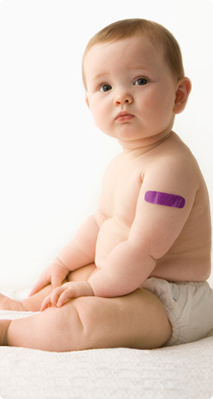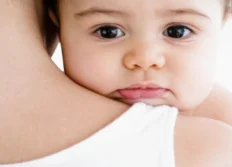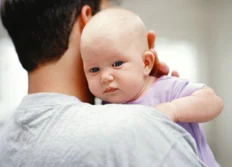
It is common for some children to develop a fever after an immunisation. If your little one feels unwell after an injection, you’ll want to do all you can to make them feel better.
From simple tips to help them feel more comfortable to doing all you can to bring down their fever, there’s lots of ways you can help.
Will my child always have a high temperature after vaccination?
They’ll often have no side effects and be their usual selves.
You might find they’re upset for a little while after the injection, and they may be a little irritable or off colour that evening.
In some cases your little one can also develop a slight fever.
How will I know if they’ve reacted to the injection?
Your baby may cry and be upset for a few minutes, but they will usually settle down after a cuddle. Some common side effects you might notice are:
Swelling or redness where they’ve had the injection. (this will slowly disappear on its own)
They may be irritable and feel unwell, or
Have a temperature (fever).
Babies having the rotavirus vaccine may get mild diarrhoea. most babies recover within a few days and you don't have to worry (but you might want to kiss them better!)
How do I know if my child has a high temperature?
Your little one may look flushed or hot, but to be sure that they have a temperature, you’ll need to use a thermometer.
To get a fast and accurate reading it’s best to use a digital thermometer.
Find out how to take a temperature here.
How can I help them feel better?
If they have a high temperature following the immunisation and are distressed, you can help your little one by treating them in just the same way as if they had a fever caused by a cold or flu.
A paracetamol-based medicine for children like CALPOL® Infant Suspension can help. It’s gentle enough for post-immunisation fever in babies as young as 2 months and gets to work on fever in just 15 minutes.
Specific advice for after the Meningococcal B vaccine
The Men B vaccine is usually given at your baby’s first and third immunisation appointments at 2 months and 4 months of age, and a booster at 12 months.
Fever is particularly common with Men B vaccine at 2 and 4
months:
Although fever can be expected after any vaccination, it is more common when the Men B vaccine is given with the other routine vaccines at two and four months. The fever tends to peak around six hours after vaccination and is nearly always gone completely within two days.
The fever shows your baby’s body is responding to the vaccine (but don’t worry - not getting a fever doesn’t mean it hasn’t worked). The level of fever depends on the individual child and does not indicate how well the vaccine has worked.
How can I reduce the risk of fever after MenB Vaccine?
Giving paracetamol soon after vaccination – and not waiting for a fever to develop – will reduce the risk of your child having a fever. This will also reduce the chance of your baby being irritable or suffering discomfort (such as pain at the site of the injection).
You should give the first dose as soon as possible after your two month vaccination visit. If necessary you should then give a second dose 4-6 hours later. Do not give more than 2 doses unless your doctor or nurse has advised otherwise.
After your four month vaccination visit give the first dose as soon as possible after your vaccination visit. If necessary you should then give a second dose 4-6 hours later and if necessary a third dose 4-6 hours after that. Do not give more than four doses in any 24 hour period.
Current advice states that paracetamol should be used to treat postimmunisation fever in babies after their Men B injections at 2 and 4 months. Your nurse will give you more information about paracetamol at your vaccination appointment and you may be given a leaflet to take away with you with written instructions.
Handy tip
Keep them cool and comfortable – don’t dress them too warmly in lots of layers.
Some more simple tips
Make sure your child gets plenty of restful sleep.
Make sure they have plenty to drink. If they have started eating solid food, offer lots of cool drinks, especially water.
How long will it last?
Your little one should soon feel better – most fevers after immunisation are mild and only last a day or two.
When to call the doctor
Your child’s fever and any redness or soreness where they’ve had the injection should clear up within a couple of days.
If you’re concerned that your child is feeling very out of sorts and their symptoms are not getting better then take them along to your GP for a check up.
A bit more about immunisation
We know that your child’s immunisations are a really important part of their healthcare during their first few months and years, and that you’ll have a lot of questions about them. So our experts have written a simple introduction including the full Irish immunisation schedule.
See also
Fever (high temperature)
When your child suffers from a fever, it can be a sign that their body is fighting off an infection. Make sure you know what to look out for and when a high temperature becomes serious.
Contact the HSE
For health advice and reassurance.
1850 24 1850




